-
 Some of our favorite recordings of the past year
Some of our favorite recordings of the past year
Not so much a Best Of list, but simply some of the editor's and writers' recommendations for listening to the world in 2023. In random order, here are notes from RW editor Cliff Furnald, and writers Michael Stone, Chris Nickson, Andrew Cronshaw, Martha Willette Lewis, Lee Blackstone, Marty Lipp, Mike Adcock, and Carolina Amoruso.
The artists we picked for 2023 are (in mostly random order): The Hack-Poets Guild, Shirley Collins, Laura Itandehui, En Gramma, Too Sad For The Public, Hiram Salsano, Hazmat Modine, Sarah-Jane Summers, Blind Boys of Alabama, Maria Ka, Jake Blount, Mar Grimalt, Seckou Keita, Snowapple, Lankum, Eliza Carthy Trio, Chango Spasiuk, Abel Selaocoe, Brighde Chaimbeul, La Bottine Souriante, Erol Josué, Baaba Maal, Camilla Hole Trio, Carminho, Jody Stecher.
Read more about our picks and listen to a song from each one.
|
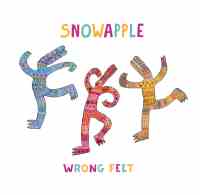
|
-
Wrong Feet is a celebration of the music of South African jazz saxophonist Sean Bergin by Snowapple, a trio of Laura Polence, Laurien Schreuder and Bergin's daughter Una.
They present an album that tackles heavy topics with good-humored absurdism, carried by inventive musicianship with strong Afro-Caribbean rhythms, spare clapping, and multiple sonic surprises, and lyrics that have a wry sharpness, about the foibles of human behavior.
Read Martha Willette Lewis's review and listen.
|

|
-
Carolina Amoruso sat down with Cuban pianist and composer Omar Sosa to talk about music and food, the changes in Cuba over the last few decades, and his musical adventures in various parts of the world.
They talk about Sosa's latest latest adventure, a collaboration with Italian trumpeter and composer Paolo Fresu. Together, they roamed around, listening to the sounds of kitchens and family dinner tables, before settling in for two days of recording improvisations based on those experiences.
Read the full interview and hear some of the music.
|
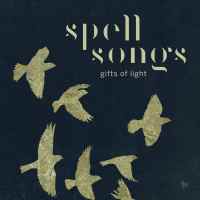
|
-
The original Spell Songs album grew from a pair of books from Robert Macfarlane and Jackie Morris, words and illustrations that became complementary incantations to nature in the compositions and performance of this group of very fine British folk musicians - Karine Polwart, Julie Fowlis, Seckou Keita, Kris Drever, Rachel Newton, Beth Porter and Jim Molyneux. All well-known individually, they set aside any solo egos to bring us some light and magic for the dark days and nights of winter, with this new live album recorded on their 2021/22 tour.
Listen to and watch these artists at work, and read Chris Nickson's review.
|
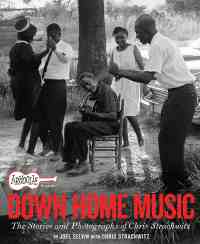
|
-
Chris Stratchwitz never saw himself as a record producer, even though his label, Berkley, California-based Arhoolie records, produced hundreds of albums. Likewise, he never saw himself as a photographer either, even though he always brought a camera to recording sessions and festivals where he visually documented the various streams of mid-twentieth century American folk music released on Arhoolie. And because he passed away at the age of 91 earlier this year, it only made sense to collect many of his best photos for Arhoolie Records Down Home Music: The Stories and Photographs of Chris Strachwitz.
Read Bruce Miller's review.
|
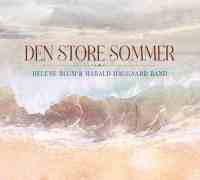
|
-
It's been several years since Denmark's Helen Blum & Harald Haugaard Band released their last album. Life and a global pandemic intervened, but they began performing again, and they've finally returned to the studio, with the old crew still together, alongside a few guests. The sound of Den Store Sommer is pared back, with a focus on original material from Blum and husband Haugaard, with a couple of traditional pieces and covers in there, like an aching version of Tim O'Brien's lilting "The Garden."
Listen to the music and read Chris Nickson's review.
|

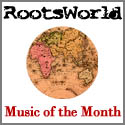
|
-
Back in 2019, we were introduced to Bâton Bleu's Weird and Wonderful Tales and their "hybrid of styles from France, Louisiana, Mongolia, and elsewhere" as David Cox wrote in his review. The France based duo of Maria Laurent and Gautier Degandt, and their quirky songs in French and English, were enchanting and sometimes disorienting.
As we approach the end of 2023, Gautier Degandt returns with a new ensemble, with all the quirkiness, and a harder edge. En Gramma ("the trace that memory left") is a trio of Degandt on lead voice, and kalimba here and there, with Oscar Philéas on guitars and chorus, and Pierre-Yves Dubois on percussion, chorus and occasional violin. Beau Brûlis (Burnt Beauty) is an adventure, a complex mixture of subtly, rawness and humor. It leans heavily on blues guitar structures, but I'll not call it blues, or rock. They call it 'trance rock,' but I am not sure if I am so much mesmerized as simply fascinated.
Find out more about this intriquing trio.
|

|
-
At the 2023 edition of EXIB Música, a showcase of music from Iberia and Latin America by engaging performers from both sides of the Atlantic, one who particularly charmed, a considerable discovery, was Mexican artist Laura Itandehui. There's a lovely clarity in the sound of her self-titled debut, with her voice always floating clear and direct over beautiful, varied arrangements. Itandehui presents us with a short but perfectly formed album, with not a note wasted; a luminous, melodious gem that deserves to be a classic.
Read Andrew Cronshaw's review and listen.
|
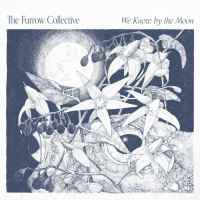
|
-
The fourth album from The Furrow Collective celebrates a decade of them playing together with a glory of material and perfectly judged performances. We Know By The Moon is very much a nighttime collection of traditional songs and a bit more... Quite a grouping it is, too, with Emily Portman, Alasdair Roberts, Rachel Newton and Lucy Farrell all returning. Between them, they boast impressive resumes and instrumental skills, as well as their vocal abilities.
Chris Nickson lights a fire and invites you to listen.
|
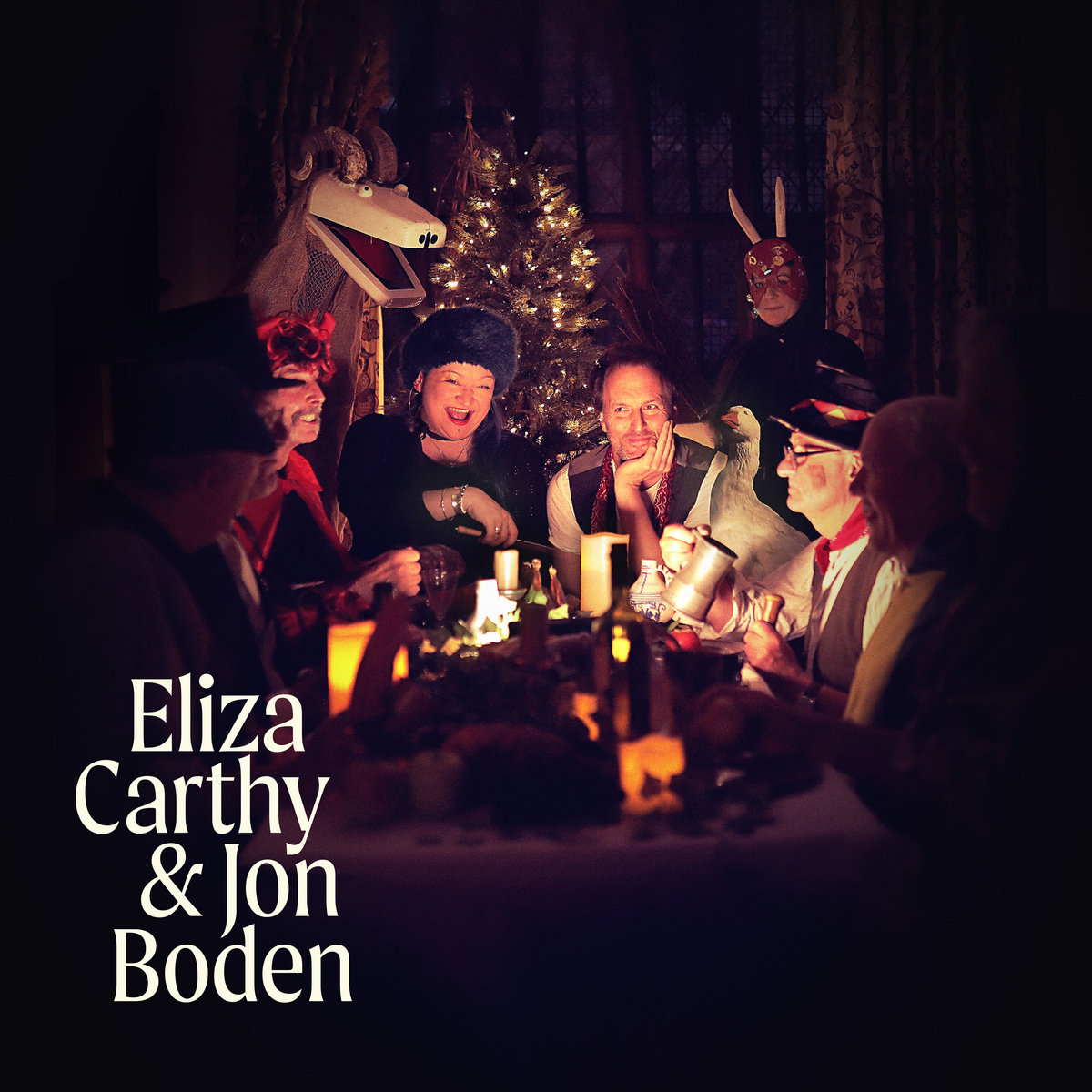
|
-
Folk icons Eliza Carthy and Jon Boden have thrown down the gauntlet in the Christmas stakes with Glad Christmas Comes. Where some might see the lengthening shadow of the commodified Christmas season to be unseemly, Carthy and Boden respond with more Christmas, by which they mean more wassail and more cheer for these blighted times. It's the message of Christmas that ultimately matters, and that message encourages us to be our best selves. And to sing. Across a generous sixteen tracks, they lay out a strong holiday repertoire. They and some friends offer a contribution in terms of lyrics, music, and exploration of source materials.
Lee Blackstone settles in with some new Christmas revels.
|
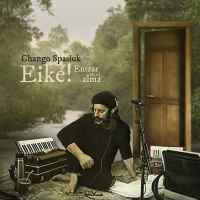
|
-
Wherever European expatriates landed in the Americas, the accordion often followed, as in northeastern Argentina, where accordionist-composer Chango Spasiuk's Ukrainian grandparents immigrated in the late 19th century. Over a career spanning 35 years, Spasiuk has become a distinguished exponent of the unique chamamé style, and a scholar of folk traditions from Argentina, Paraguay, Bolivia, Uruguay, and Brazil. Spasiuk and his artistic partners summon an atmospheric music of profound serenity, beauty, and feeling on Eiké: Entrar en el alma.
Michael Stone listens in.
|

|
-
There are albums that find their homes burrowed in the dark, deep recesses of our minds. No earworms, no bright, catchy melodies, just a profound sense of disturbance. That's Cyrm, the first album from Irish quartet Øxn, taking the music about as dark as it can go. No redemption, no light and shade, nothing but shadows and fleeting ghosts. Listen to their take on the traditional song "The Trees They Do Grown High," and the bleakness is obvious from the first piano chords. It's Lear's blasted heath set to music.
Chris Nickson reviews.
|

|
-
There's quite a variety of bagpipes across the countries of the former Yugoslavia. Well-known pipers from Serbia include Bokan Stankovic, the late Darko Macura, and here, Vanja Ilijev from the city of Zrenjanin in the northern plain of Vojvodina recorded solo at his house in Zrenjanin in April 2023.
He plays the local form of gajde (the Serbian word for the range of bagpipes). It's bellows-blown, with a single drone and a large double-bore chanter terminating in a wooden horn. On the album Made in Zrenjanin: Serbian Music from Vojvodina he uses gajdes of this type in three different keys, each with its own tonal character.
Andrew Cronshaw reviews.
|
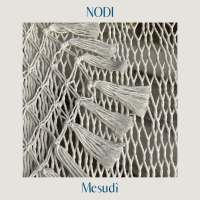
|
-
Four years after this Italian vocal quartet first began, Mesudì are releasing their debut album, Nodi. Three women and one man who create a labyrinth of voices shifting and sliding around each other on arrangements so intricate that each song must take days to rehearse. The results are quite majestic, starting with "Anvaca," where the females singers and driving percussion provide a base for Simone Pulvano's raw sprechgesang, something very close to rap on the traditional lyrics.
Chris Nickson reviews.
|

|
-
I am very pleased to be sharing some wonderful performances of new Danish music, recorded live at a festival in Denmark in August of 2023. Both were part of a series dedicated to promoting Danish music to a wider audience, both locally and globally. Here are the first two.
Høst is a quartet of women from Denmark and Sweden with an interesting take on tradition and voice. Listen here!
Danish Fiddle Quartet is a string quartet formed by violinist Jørgen Dickmeiss that plays modern Nordic folk music. Listen here!
|
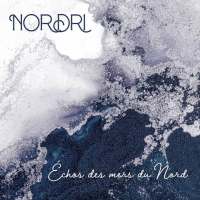
|
-
Nordri is a quartet of superb Québecois musicians bond over a love of Nordic music. What they put together in Échos Des Mers Du Nord is nothing short of sparkling. Virtually all original work, there's a real joy in their exploration here, a sense of listening and giving each other space, as well as excitement in performing which gives such a driving quality to the opener, the very Swedish-inflected "Le Retour Du Drakkar." The interplay between the violins, viola, mandolin, Baroque guitar and bass is always delightful, and the very clear separation of instruments in the mix makes listening a sheer pleasure.
Hear more of the music while you read Chris Nickson's review.
|

|
-
In a Facebook post about her latest album, Rhiannon Giddens self-deprecatingly joked that it wasn't until she turned forty-six that she finally made a record composed entirely of her own songs. But maturity has its rewards. With You're the One, the singer, banjoist, and violinist delivers the most assured and enjoyable work of her career. She weaves together the various strands of her brand of Americana with flair and confidence, and her singing, which at times could be note-perfect to the point of sounding studied, now has a welcome looseness and freedom. The pure tones and deft way with melody (legacies of her opera training at the Oberlin Conservatory) are still there, but she can dirty up a line with bluesy growls and moans.
Read George De Stefano's review and listen to some of the music.
|
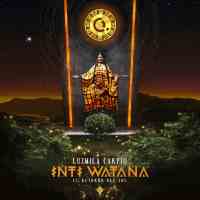

|
-
Luzmila Carpio's Inti Watana: El Retorno del Sol provides moments when the earth opens up and a bird-like cry echoes from the interior. We are listening to a conversation with Pachamama or Mother Earth and in this world "god is alive and magic is afoot." At 74 years old, these may be some of Carpio's last words on women's rights and the rights of her indigenous kindred, the fate of the planet and her spiritual values. She is a messenger of social justice, her music an expression of rebellion.
Many of her songs are sung in her native Quechua. She grew up on the high plains in Bolivia, where her mother taught her to carefully listen to bird calls and mimic their pitch in order to penetrate the temporal world and converse with Mother Earth. She was told to refine her sound to a pitch as thin as a strand of hair so the earth will receive it. On this album, a backdrop of electronic and acoustic instruments is provided by producer Leonardo Martinelli, aka Tremor, an artist dedicated to joining Latin American folk rhythms with modern electronics. His sound is added in a respectful way that elevates and enhances Carpio's music.
Read Lisa Sahulka's full review and hear some of the songs from the album.
The album is our pick for Music of the Month for November, 2023.
|
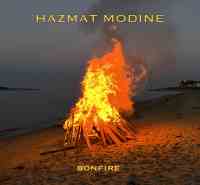
|
-
Hazmat Modine has the soulful, scruffy feel of traditional music, but the magic of the band is that it never quite lands in one specific tradition. On Bonfire they continue to call out from a unique musical territory that co-locates with American genres. But they do so with some sleight-of-hand, introducing instruments from other cultures as well as concocting powerful songs with varying mixes of wise man and wiseguy... Though Hazmat Modine's nominal ancestry is based on folk traditions, careful listening shows that the band's music is a thoughtful refinement of that global heritage. Band leader Wade Schuman and company are not folk musicians—no blacksmith cum fiddler here—they are artists channeling the egalitarian heart of roots music for everyday folks; preserving its urgency while making it sophisticated too.
Marty Lipp reviews. Come read and listen.
|
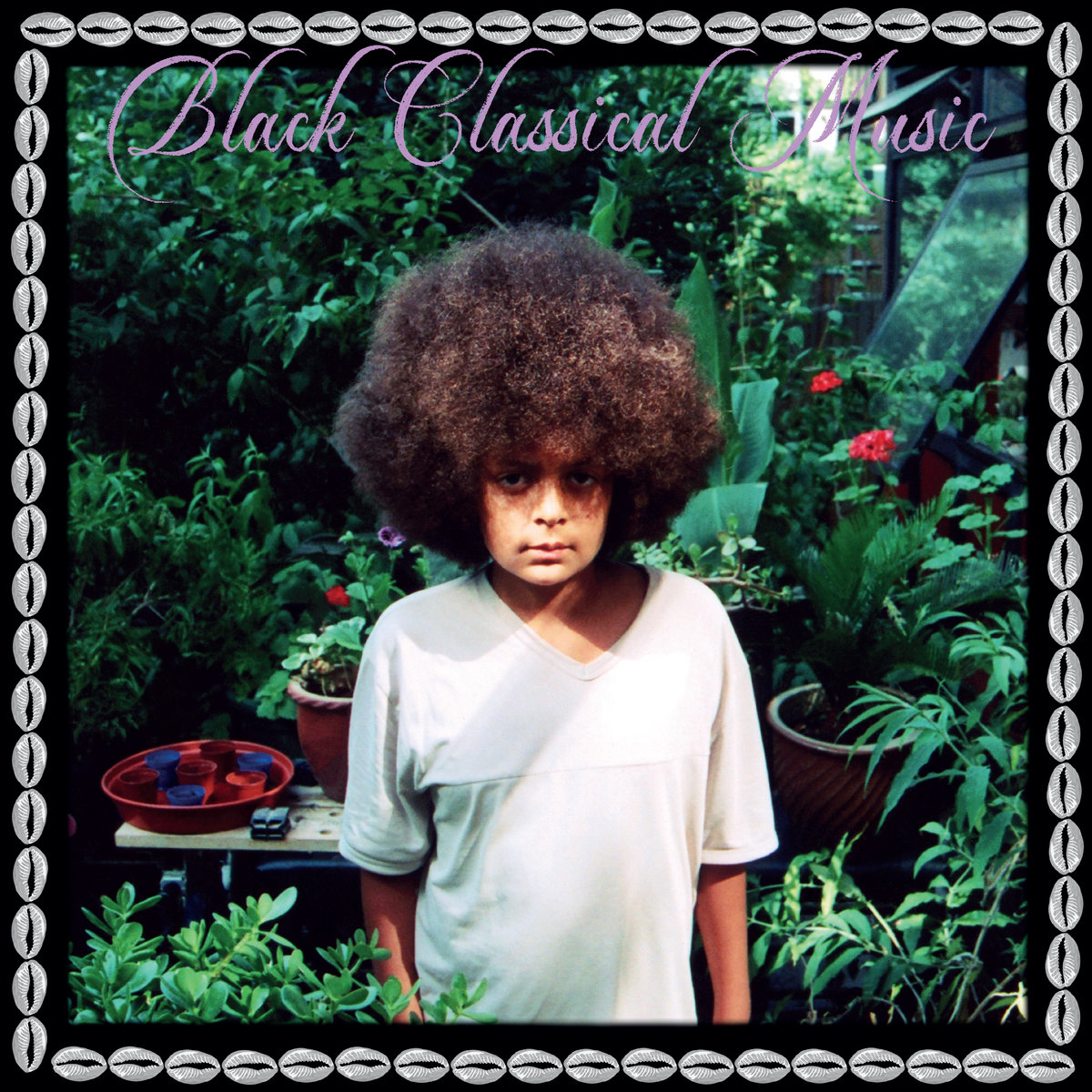
|
-
Rather famously, Miles Davis, Nina Simone, Rahsaan Roland Kirk, and many others have all questioned the idea of jazz, believing the term to be too small to encompass a genre better defined as 'black classical music.' Drummer and writer Yuseff Dayes uses the term to define the 19 compositions presented here. It is a dreamy meditation with tiny interludes for connective tissue. His album Black Classical Music is so remarkable that it is humbling to review.
Kassa Overall's music, like Dayes' work, is a watershed moment for jazz; a true child of bebop, hard bop and cool jazz, not a regurgitated half mix of rap, hip-hop, R&B and jazz. It is definitely not smooth jazz. It is its own genre, specific to Overall's time and place in this universe.
Lisa Sahulka digs in deep to the how and why of this music.
|

|
-
There's such a solid instrumental dance tradition in Québec, so sometimes it's hard to sort through all the fine artists making music there. Nordri's new album Échos des mers du Nord jumped right out at us, though. We'll have a full review soon, but for now, give one of their more exclamatory tunes a listen. Bet you can't dance to it!
Sound Bites is our collection of short reviews, and well, sound bites.
|
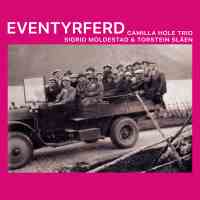
|
-
Eventyrferd (Fairytale journey), the second release from Norwegian saxophonist Camilla Hole and her trio, demonstrates perfectly how music brimming over with new ideas and varied instrumentation can really work when understatement is the guiding principle, where nothing is ever allowed to outstay its welcome. Sometimes there's more than a brush with free jazz, at other times there's electronic wizardry, but pretty much at the heart of all the tracks is music from, or informed, by Norwegian traditional music - dance tunes, wedding marches and different vocal styles.
Mike Adcock reviews.
|
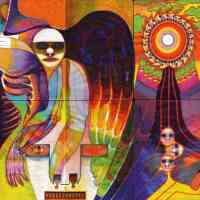
|
-
Between 2020's Vodou Alé and this year's Somanti, Chouk Bwa - the collective of Vodou-steeped musicians from Gonaives, Haiti - and Brussells-based electronics duo The Ångströmers faced pandemic-based separation, but also managed to release a few EPs as well as a European tour in 2022. Somanti certainly feels as if they never stopped, though its power might be a reaction to the fact that a public health emergency forced them to do that very thing. The basic concept- relentless hand drumming and call-and-response vocals filtered through an often subtle haze of electronics hasn't changed. Yet the new album feels busier, more urgent, louder. At times, it's unclear just what role The Ångströmers play in any of this; elsewhere squelches and blips sneak in and out of the stew Chouk Bwa create. It's a bit like trying to spot Brian Eno's contributions to those first two Roxy Music albums. The fact that this record was done in a single day after their tour last year might have something to do with the energy here. Bruce Miller reviews the latest from this collaborative ensemble.
|
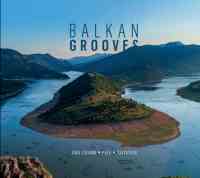
|
-
Trio Grekow-Peev-Tsvyatkov features three musicians who come to this project having each made a name for themselves in numerous other collaborations. Accordionist Jacek Grekow is Polish but has long been interested in Balkan music; Peyo Peev is already a renowned exponent of the gadulka, the bowed instrument from his native country Bulgaria, and guitarist Hristiyan Tsvyatkov, also from Bulgaria, has played internationally with various ensembles. They have now come together to produce the trio album Balkan Grooves, and it certainly makes for an interesting listen.
Read Mike Adcock's review and hear the music.
|
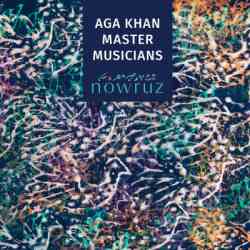
|
-
The Aga Khan Master Musicians display a high level of musicianship, presenting coherent collaborative performances which belie the fact that they emanate from a range of musical backgrounds, encompassing the Middle East, Central Asia and China. "Tashkent," the opening track of their debut album Nowruz showcases this admirably, setting the style of what is to come... Each of the six musicians playing have contributed at least one composition to the album, either played solo, as in the case of Jasser Haj Joussef's �"Cadence"� performed on the viola d'amore, or anything upwards of that.
Read Mike Adcock's review and listen to some of the music.
|
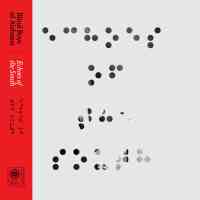
|
-
In 1944 a teenage gospel sextet from the Alabama Institute for the Negro Deaf and Blind appeared on 'Echoes of the South,' a popular Birmingham program hosted at radio WSGN. They had formed in 1939, inspired by their idols the Golden Gate Quartet, they called themselves the Happy Land Jubilee Singers. In 1948, they rechristened themselves The Five Blind Boys of Alabama. Nearly 85 years later, with an ever-shifting lineup, The Blind Boys of Alabama continue to record and tour today. They return this year with Echoes of the South, as well as a documentary about their remarkable history.
Read Michael Stone's review, listen to some of the songs, and see the trailer for the film.
|
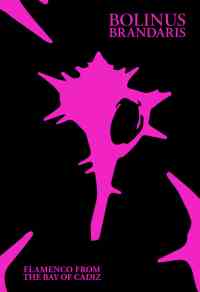
|
-
Flamenco is one of the best-known folk music forms in the world. The sheer visual image of dancers, draped in sweeping red or polka dot floor length dresses that they harness like bull fighter capes as they spin to castanets and flamboyantly strummed guitars, certainly has had much to do with its fame. One of its most famous singers, the silver-voiced Camarón de la Isla, with his guitarist Paco de Lucia, is also crucial to its international acclaim.
So, it might seem odd for Dust to Digital, a label known mostly for housing boxed sets of obscure 78 RPM artifacts to focus its attention on it at all. But then, there must be some part of flamenco's story missing. And it's the desire to cut through the cheap, tourist-based flamenco performances and get to the music's mysterious soul that is the reason Bolinus Brandaris- Flamenco from the Bay of Cadiz exists. This is a book first, though the accompanying 42-minutes of music on the CD explains in sound the story that the book tells.
Bruce Miller delves into the stripped down rawness of the real flamenco presented in this box set of book and music.
|
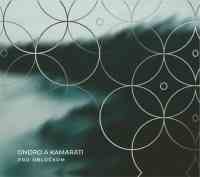
|
-
Singer, accordionist and pianist Ondrej Druga's ensemble, Ondro A Kamaráti present traditional and new works with deep roots on Pod Oblockom. After a tepid start, Andrew Cronshaw writes that the transformation into the album he wanted to review comes with the third track, "Hora Mi Je Hora." A brief tinkle of piano, then in soars the strong, traditional voice of Sabína Ladecká in a song from the Horehronie village of Vernár. Druga joins her with a much more powerful voice than he used in the first two tracks, then the track really opens up gloriously as violins, viola and double bass join the piano in an arrangement that's anthemic, rich - indeed lush, but really comprehends the modal nature of the melody, and both singers let rip, individually and in duet.
Read the full review and listen.
|
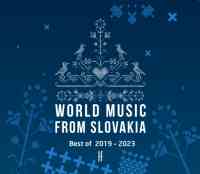
|
-
We get a tour of 20 tracks of new music on World Music From Slovakia - Best of 2019-2023. These songs, not a weak one among them, exemplify what a head of steam the current Slovak roots scene has developed. Most here have won or been finalists in Slovakia's Radio Head Awards, and quite a few have appeared in the higher reaches of the world music charts. Thirteen have credits that include the word 'traditional,' with arranger or co-writer credits to band leaders or members; the remainder are new compositions, and all have pretty highly-developed arrangements. In a nice touch - unusual in compilation albums, the enclosed notes list each track with descriptions, the names of the band or lead musician, all band members, and their instruments.
Andrew Cronshaw explores these tracks and you can listen as you read.
|
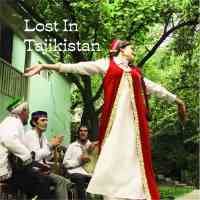

|
-
Tajikistan, bordering on Uzbekistan, Kyrgyzstan, Afghanistan and China, is a mountainous country with a population of about ten million, the great majority of whom are Tajik. It became independent in 1991 when the Soviet Union collapsed. Lost in Tajikistan is what producer Lu Edmonds describes as "just a tiny slice of the mountain music... whose rich traditions have soaked up the traffic of the Silk Roads and beyond for thousands of years." These recordings aren't from archives. They're from 2008 when Edmonds and musician Iqbal Zavkibekov put together a 16-track recording setup in Dushanbe's Gurminj Museum of Musical Instruments. We're not talking Abbey Road here. It was -20°C outside, and although the museum was heated, much of the warmth came from the musicians who packed in to grasp an opportunity to record. It's only now that those recordings have been cherry-picked and mixed to finally make this album by an interesting collection of musicians and singers. Andrew Cronshow delves into the tracks.
Andrew Cronshow delves into the tracks.
This album is our selection for Music of the Month for October. Monthly subscribers will get the full digital album and notes as my thank you for supporting RootsWorld. Subscribe now and get this and a previous CD selection.
|
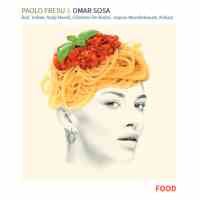
|
-
Omar Sosa and Paolo Fresu have a three album trilogy, Eros and Alma, and now their latest, Food, takes on another layer of their cross cultural musical exploration.
What elevates Omar Sosa's playing is that his improvisational muse is grounded by the clave and montuno of Afro-Cuban music. Sosa may go farther afield but he always comes back to the invisible scaffolding of Cuban music. These parameters are joyous constraints that make him so interesting to listen to.
Paolo Fresu is an Italian trumpeter from Sardinia Italy, who is often compared to the moody atmospheres Miles Davis and Chet Baker conjured. On Food, Sosa and Fresu have created a beautiful album that channels the joy of food, the communal table life, and also the implications of climate change, in an emotional and intimate album.
Read Lisa Sahulka's review and listen.
|

|
-
U.S. fans of Sharon Shannon's lively and lovely music will have just one more chance to see her perform stateside - she recently announced that her current tour of the US will be her last, though she will continue to release albums and tour elsewhere... The tour also coincides with the release of Now and Then, a boxed set of Shannon's catalogue, which began in 1991 with the release of her eponymous debut, one of the biggest selling album of Irish traditional music in history. Since then, Shannon has stayed rooted in the tradition while collaborating with an international array of musicians—from Jackson Browne to Sinead O'Connor to British dub-poet Linton Kwesi Johnson to Galician piper Carlos Nunez—and incorporated other cultures into her repertoire.
Sharon Shannon talks about how she found her way to the accordion and tells us old old stories and upcoming plans in her interview with Marty Lipp.
|

|
-
Magos Herrera's meticulously crafted musical gift is like an undulating mosaic, the colors of its myriad tesserae growing in hue and intensity as she adds new facets to her musicianship. The mosaic grows brighter still as her spirit, intelligence and body in motion reveal her personal interpretation of the music that has captivated her: jazz. "Freedom," she says, "that's jazz to me. It's harmonic sophistication with freedom."
An artist of composition, voice, collaboration, even the finery of album design, Herrera did not come to jazz as if raised in its bosom. Having been born in Mexico where there was no true jazz culture, she'd had little exposure to the idiom as a child, although she recalls itinerant foreign musicians who passed through her hometown of Mexico City, and others who'd stayed, especially exiled Brazilians bringing with them their many rhythms, weighty lyrics, and winsome vocalists.
Magos Herrera talks with Carolina Amoruso.
|
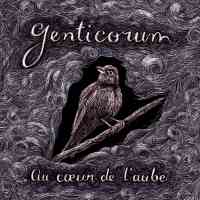

|
-
After more than two decades together, the three members of Genticorum form one of the tightest units on the planet. In music from their native Québec (both traditional and original) they have found a rich seam that clearly has plenty of treasures to mine.
They open with "La Batelière," which crackles with gleeful energy. The interplay between the instruments and harmonies is sharp and adept, yet still a completely natural, high-octane conversation that constantly shifts from one player to another.
Hear the music and read Chris Nicksons review.
Au Coeur De L'Aube is our pick for Music of the Month for September, 2023.
Subscribe and receive this and more music throughout the year.

|

|
-
"It is not always easy to love what we have, because sometimes it weighs on us like tons and tons of cement."
Conflict and ambivalence are at the heart of this delightful, surprising offering from musician Mar Grimalt. Espurnes I Coralls (Sparks and Corals) is fresh, personal, and hard to pin down. When I think of Mallorca, I imagine a place of bright daylight, holidays and warm sun-baked spaces of leisure. For singer and composer Mar Grimalt it conjures up images of industrial sand dunes, gravel and giant machines. She grew up on the island, and her family runs a cement factory... She played in the gravel and sand mountains as a child but began to develop a more critical stance as she grew older. She says she is looking to honor the family's life's work, and to reconcile "the little doll that played in the mountains of gravel" with her need to break free of its hard-shell confines. That may be, but the family business plays large in the album, with soundscapes and on-site samples from the family business. Recorded in July 2022, it layers and mixes spoken word, ambient noise and music into lush and unusual offerings. Mallorcan poetry wafts through the album, which means that words as much as music matters here.
Explore this unique recording with Martha Wilette Lewis.
|
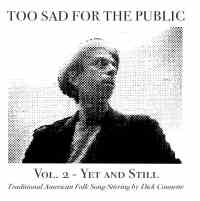
|
-
In his lovely, soulful second album as the collaborative Too Sad for the Public, composer Dick Connette reverently and sometimes irreverently takes the roughhewn spirit of American folk music and refines it like a hunk of whale bone etched into an elaborate, beautiful scrimshaw. On his latest, Vol. 2: Yet and Still, Connette mostly turns to Canadian-born and Brooklyn-based Ana Egge as the vocal focus of the songs with lyrics. Her bluesy drawl, reminiscent of a laidback, late-night, jazz-hipster, gives the songs a sardonic, wry sensibility.
Though known as a composer, he also shines as a lyricist. His sung stories have the resonance of folk wisdom, but he seasons his wisdom with wry touches of absurdist wit.
Read Marty Lipp's review and listen to some of the music.
|

|
-
Maria Ka makes it abundantly clear in her music that the personal is political. Ka lives in Poland, and she discovered that her family had covered over its Jewish roots; there were Jews in her father's genealogy. This revelation led Ka to pursue Jewish studies and psychology at University in Krakow. It also led to further realizations: that the Yiddish language deeply resonated with Ka, and that her University program did not provide much by way of women's studies... These interests permeate Der Hemshekh ('The Continuation'), which she sings entirely in Yiddish. The sound world of the album is resolutely contemporary, primarily built around electronics and loops, oboe, drums, and Maria Ka's vocals.
Read a little personal history and a review by Lee Blackstone.
|
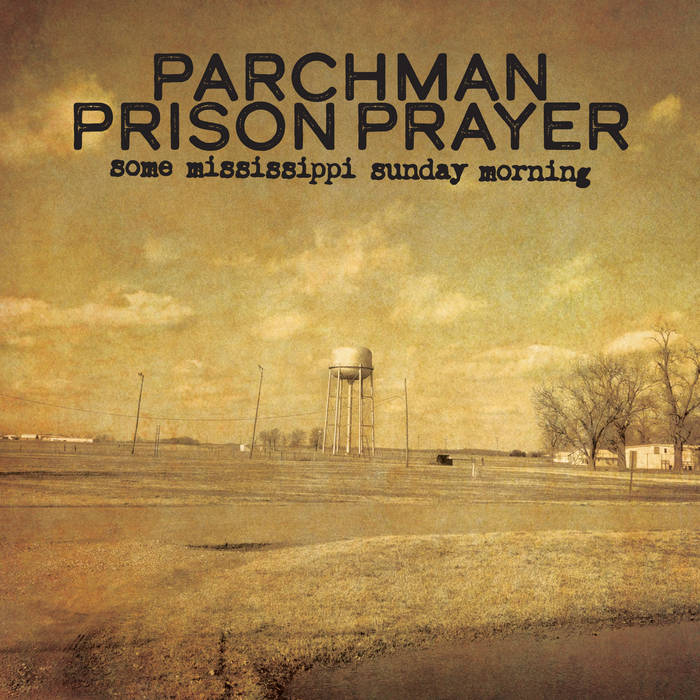
|
-
Parchman Farm is one of those names that echoes across the history of American music. It's been the subject of songs by Bukka White and Mose Allison. Alan Lomax recorded there, making the first recordings of Leadbelly. It had the reputation of being a hell on earth. It's the oldest penitentiary in the US, and it's still there.
Producer Ian Brennan had been trying to gain access to the place for three years, and in February this year he was finally allowed in to record a Sunday service with just one week's notice. Singers were drawn together for the session from a dozen different church services, some performing alone, others as part of a group. Brennan captured it, all live, with not a single overdub, and we get to hear the results in Parchman Prison Prayer: Some Mississippi Sunday Morning.
Read Chris Nickson's review and hear some of the recordings.
|
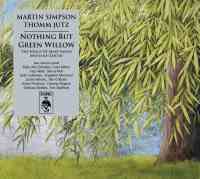
|
-
Martin Simpson has become an elder statesman among guitarists, his work on acoustic six-string and banjo simply devastating in its effortless style, and he's rightly achieved a hero's status for us. He's a man who's often made connections between the English and American traditions, and in Thomm Jutz, a German-born American bluegrass musician, songwriter, and Appalachian scholar, he's found a perfect companion for this particular exploration. Nothing But Green Willow; The Songs Of Mary Sand And Jane Gentry presents music collected by British musicologist Cecil Sharp, from two women in Western North Carolina in 1916. Chris Nickson reviews this new album , as well as a reissue of some more American tunes recorded in the 1970s by The Scrub Jay Orchestra (Ian A. Anderson, Maggie Holland and Martin Simpson).
|
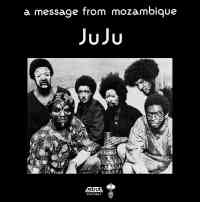
|
-
The past twenty years or so have given us a number of free and spiritual jazz reissues, many of which were made by ensembles who never recorded again, or whose output was confined to small imprints that were never able to offer any distribution... Saxophonist James Branch- aka Plunky Nkabinde- is a crucial part of this scene. Initially connecting with Zulu musician Ndikho Xaba in San Francisco, Plunky joined Ndikho and The Natives, another spiritual jazz group that only recorded a single LP (2022 saw this LP reissued in South Africa and the US). From there, he formed Juju. A Message from Mozambique, released in 1973 on Strata-East and then again on Washington DC's Black Jazz label, is a much more raw affair. Juju's shaggy ferocity valued passion over finesse.
Read Bruce Miller's review.
|

|
-
The opening track of Sarah-Jane Summers' latest album, Echo Stane, is the atmospheric "Airtan" which sets the mood with what is for the most part an exploratory piece of improvisation, one which can too easily prompt the reviewer to reach for over-used adjectives like "dark and brooding." But this melancholic undercurrent is almost intrinsic to the sound of the Hardanger fiddle, even in the animated dance music, with the melodic tension shifting between the higher and lower strings. Here the lower string holds a drone while an upper string seeks out a melodic line, disconcertingly sliding up and swooping down, the center of gravity shifting and the bowing producing a range of grainy tones from the strings.
Read Mike Adcock's review.
|
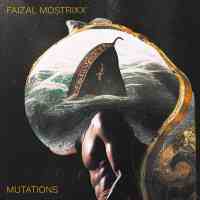
|
-
Choreographer, dancer, DJ, and musician Faizal Mostrixx's Mutations comes at a moment when radical electronic and dance music from Eastern Africa is getting crucial global exposure. Experimenters such as Otim Alpha, Ocen James, and Nihiloxica- all from Uganda- have altered centuries-old rhythms and instrumentation from various parts of the country, sculpting them into dance-floor ready shapes as well as abstract make-overs... Mutations follows the sonic trajectory of 2022's Transitions EP, in as much as it fuses field recordings with sometimes frantic synths and pads, at times coming off as a cousin to Chicago's long-evolving footwork scene. Mostrixx' mother was a dancer, and he grew up hearing imported pop sounds from nearby Congo and other neighboring countries. And because of the dominance western sounds still hold over the globe, his music naturally makes use of elements found in house, dub, down-tempo, and hip hop.
Listen in, and read Bruce Miller's review.
|
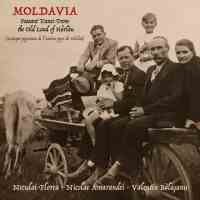
|
-
Moldavia - Peasant Tunes From The Old Land Of Hârlau presents recordings made in 2019, 2022 and 2023 by Neculai Florea, Nicolae Amarandei, Valentin Bălaşanu, in the traditionally Moldovan region of Romania in the counties of Iaşi and Botoşani in the north-east, near the border with Moldova, playing fiddle, cobza (a traditional pear-shaped lute with a very short neck), and wooden whistles.
Read Andrew Cronshaw's review and listen to some samples from the recordings.
|
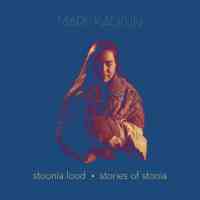
|
-
Stoonia Lood / Stories Of Estonia feels like an album that's been gestating inside Mari Kalkun's imagination for years, finally emerging into the light, as the singer and instrumentalist shows her Estonian homeland in its deep, raw nature, an antidote to the plastic shimmer of the 21st century. Her songs are filled with air and space, lightness and the grace of nature, and in British folkie Sam Lee, she's found the perfect accomplice to bring it all to life... Vocally, she's never sounded better, with the confidence of experience and the certainty of belief in what she's doing.
Chris Nickson shares this new work from Estonia.
Chris Nickson shares this new work from Estonia with you.
|

|
-
The name of this Finnish trio is a perfect description of their sound. Sähköpaimen translates as "electric shepherd," and their music is a persuasive, heady mix of the contemporary and the rural, as Amanda Kauranne and Kirsi Ojala's wind instruments, mouth harps, and wild, uncontained vocals rub and roil against Eero Grundström's electronics and loops. Hämärä (Twilight) marks that time of day when the transition from the real world into the realm where magic happens, and the band explores the possibilities that lurk in the darkening shadows.
Read Chris Nickson's review and listen.
|


|
-
With advanced degrees in musical performance and voice, and captured by the culture, spirituality and music of Candomblé, Bahia-born Irma Ferreira began a profound investigation of her Afro-Brazilian roots. Candomblé is Brazil's New World iteration of African sacred practices, having evolved mostly from the Yoruba traditions of the West African countries of Nigeria and Benin... Ferreira's first solo album release, Ém Cantos de Orisá, bears the fruit of her investigation, borrowing both chants and melodies from Candomblé's trove of devotional works.
Read Carolina Amoruso's review and listen.
|

|
-
The lurching, wiggling rhythms of Swedish fiddle polskas, particularly those from the region of Dalarna, can be hard for the listener to grasp, though easier if one learns to dance them. The fiddler's foot-tap can be a clue, but here, explored by the duo of leading fiddler Ellika Frisell and Mexican-born percussionist Rafael Sida, there's much more help than that: a window on polska's subtle internal rhythms and their possibilities. Färg Och Tid is no short-term fusion-type project; over the years that they've lived and played together, Sida has found ways to interpret and accompany Frisell that draw on his wide experience of the rhythms of the world, with his battery of hand and stick-hit percussion. Frisell, too, has connected polska with traditions from elsewhere, from her time with the mighty Filarfolket in the 1980s and her partnership with Senegalese griot kora-master and singer, the late Solo Cissokho.
Andrew Cronshaw explores the intuitive and deep connections in 'color and time.'
|
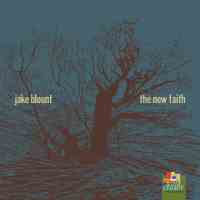
|
-
Singer, fiddler, banjoist, percussionist, scholar, and exponent of Black roots music and dance, Jake Blount presents a searing album alive with Old Testament fury, gospel revelation, and topical prophecy, an unsentimental tale of earthly destruction, suffering, and resilience set at the end of days. Drawing upon what W.E.B. DuBois dubbed "The Sorrow Songs," Southern ring shouts, African descendants enslaved in colonial Jamaica, Gullah-Geechee tradition, the blues, and sundry Lomax field recordings, Blount shares inspiration with Black Americana revivalists including Ranky Tanky, Our Native Daughters, The Carolina Chocolate Drops, and many more. The New Faith is best taken in as an operatic whole, from start to finish.
Read Michael Stone's review and listen to a number of tracks and 2 videos.
|
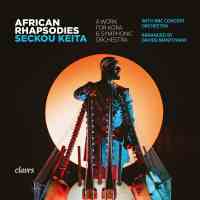
|
-
Sekou Keita, with his traditional background, skill and compositions, and Davide Mantovani's great abilities as arranger, bring to orchestral music a beautifully different set of musical ideas. No straightforward orchestration of kora melodies, African Rhapsodies is a series of full concerto integrations of kora and The BBC Concert Orchestra in which melodic lines and excursions come from both sides, so that they are no longer two, but a unified whole.
Read Andrew Cronshaw's review and listen to some tracks from the recording.
|


|
-
Aire posts Magos Herrera at the summit of her creativity and her agency. For the first time she holds the reins of vocalist, lyricist, composer, co-arranger, and executive producer, even artistic director, crafting, with an impressive supporting cast, a work all her own. Among the A-list players to join her are: Jacques Morelenbaum; Gonzalo Grau; Diego Schissi; Dori Caymmi; and her frequent collaborators, the Knights. The album is broad brushed with the ever-fluid notion of jazz, embellished with classical sounds, indigenous traditions, Latin, and Bossa Nova. Magos Herrera's deep luxuriant vocals, lending their way equally to all sensibilities, flow frequently into wordless song, allowing Aire to convey both the lightness and heft of air.
Carolina Amoruso reviews an album of stories in song.
Aire is our selection for July's Music of the Month. Find out how you can support RootsWorld and receive a copy of the album.
|
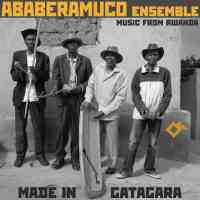
|
-
Rwanda has a rich musical heritage but one which is less widely know than those of some other African countries. One notable exception has been the music of Adrien Kazigira and his band The Good Ones who play acoustically but in a contemporary style with guitar, percussion and vocals. Ababeramuco's album Made in Gatagara has a much closer connection with the traditional music of Rwanda, both musically and in the instruments used, the band's name translating as "The Traditionalists." There are four musicians: Gerard Rusatsi on the umuduri, a one-string bow played with sticks; Silvain Mutabaruks plays the iningiri, a one-string fiddle; Jean Marie Vianey, the inanga, a type of zither and Godefroid Ayirwanda, who plays a lamellophone known in Rwanda as an ikembe. All four contribute vocals and several tracks also feature unspecified percussion. Gatagara, named in the album title, is the village in whose neighborhood the four musicians live and play together.
Mike Adcock reviews.
|
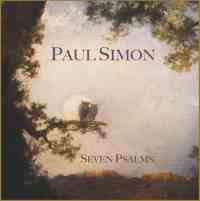
|
-
Paul Simon has chronicled his life in words for many decades, telling his stories as narrative fiction, wrapped in poetry and music. Lisa Sahulka has taken on the task of reviewing not only his new recording, but looking back on the biography in song, real or imagined, that he has spent his entire adult life creating.
Seven Psalms is a suite in seven-movements, an acoustic masterpiece and possibly the last conversation we are going to have with him. The album is based on The Book of Psalms, the first book of the third section of the Hebrew Bible called Ketuvim (Writings). These are hymns of doxologies or praise to God. However, his Psalms are skeptical and more realistic, in the sense that if God exists then we have to acknowledge this being as both omnipotent but also evil, inflicting pain and sorrow. "The Lord is my engineer…The path I slip and I slide on. …The Lord is a virgin forest. …The Lord is a meal for the poorest of the poor. A welcome door to the stranger."
Lisa explores his new recording, in the shadow of the old.
Read Lisa's review and hear the album.
|
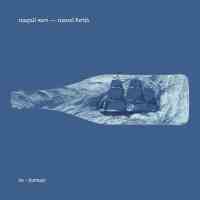
|
-
re-tornar sounds like New York City, with an unexpected lightning fast pace which can slow down and cool off like a Barcelona evening (where they both live). Bass player Fortià's time in New York City influenced his music and perspective. Magalí Sare has acknowledged her passion for Flamenco and tango music... She is a singer, flutist and percussionist both in the classical and jazz genres. The polytimbral quality to her voice adds immensely to their collaboration. re-tornar explores stories of
Read Lisa Sahulka's review and listen to some of the tracks.
|
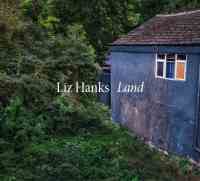
|
-
There can be a sober, noble sensibility about a solo instrument, and the cello, with its expressiveness so close to the human voice, is able to tug fiercely at the heart. In the right hands it possesses beauty and power, and Liz Hanks owns the right hands and imagination. She's worked with people in folk music and beyond, but for Land, she has made her world shrink. Not simply to a lone instrument, or even to the Steel City, Sheffield, where she lives, but quite specifically her local area of Meersbrook. The tracks become a walk through its geography and history, as tactile as any mix of playing and field recordings can be.
Chris Nickson takes you on this serene walk.
|

|
-
Listening to these 3 albums by Sheila Chandra again, it's hard to believe they're around 30 years old. At the time they were released, they stood like beacons, unlike anything else out there, whether it was the slippery, abrupt turns of the konnokol mouth percussion that marked the "Speaking In Tongues," to the reworking of the traditional English folk song "A Sailor's Life," where her vocal phrasing connected the piece to India, to the starkness of ABroneCroneDrone.
Chris Nickson looks back on these newly reissued, essential albums.
|
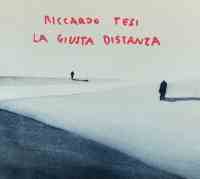
|
-
Riccardo Tesi is a leading virtuoso of the diatonic accordion (the push-pull button squeezebox known in English as a melodeon, in Italian as organetto), as well as a composer, soloist, and leader of many ensembles and theatrical projects. During the pandemic, he composed most of the twelve pieces on his latest work, La Giusta Distanza, where he is joined by a core unit of guitarist Viera Sturlini and percussionist Francesco Savoretti, forming the Elastic Trio, augmented by a cast of other instrumentalists and, on three tracks, singers.
Andrew Cronshaw shares his impressions of some of the music, and you can listen along as you read
|

|
-
The lost lithophones of Vietnam
In February of 2023 I made my second visit to Vietnam and my reason for going was again a musical one, summed up in one word: stone. For more than twenty years now I've had a thing about the way in which certain cultures of the world have chosen to produce music from this most unpromising of materials. Certain types of rock will ring when struck and, depending on length and thickness, can produce notes of identifiable pitch. Instruments which employ this principle are called lithophones.
It was Vietnam which really put lithophones on the map internationally. In 1949 some villagers in the Central Highland region unearthed a set of stone slabs and brought them to the attention of a French ethnologist living there at the time who reckoned they were a form of ancient musical instrument, promptly had them sent to Paris for further investigation and that's where they have remained to this day.
Mike Adcock decided to go to the source to find the stones and their players. Join Mike's journey into the fascinating world of a musical instrument little known to modern listeners.
|
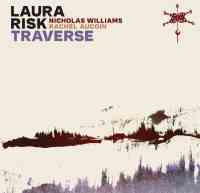

|
-
Fiddler Laura Risk and the two other members of this trio - Nicholas Williams on piano-accordion and flute, and pianist Rachel Aucoin - live in Québec, though none is originally from there. Risk is from California, the other two from other parts of Canada, but all are very experienced in Qúebécois music, indeed have received awards in relation to it and there are fine pieces from that tradition here. What particularly strikes me, though, is Risk's command of, and influence from, Scottish material and styles of melody and playing on Traverse.
Andrew Cronshaw reviews.
Traverse is one of our selections for Music of the Month for June. Find out how can subscribe and get this fine album and many more throughout the year.
|


|
-
There is a wild boldness to Hiram Salsano's singing, plus a deep knowledge and understanding of her Italian tradition, and an originality to the arrangements, on her debut album Bucolica.
Salsano's focus is the traditional music of southern Italy, in particular that of her home region, the mountain areas of Cilento in Campania, to the south and east of Naples in western Italy.
Internationally, the best-known southern Italian traditional musics are probably pizzica and taranta, whose heartland is the Apulia region on the other side of Italy from Campania, but this isn't a taranta/pizzica album. Salsano's sources and music are much more varied.
Andrew Cronshaw reviews 'a splendid album from a very significant musician.'
Bucolica is our selection for Music of the Month for June. Find out how can subscribe and get this fine album and many more throughout the year.
|
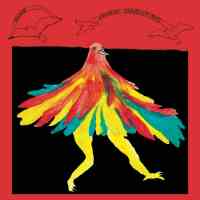
|
-
L'oiseau magnifique is a clever new album by a Geneva based trio named Alice that uses harmonic vocals and an electronic keyboard to create spare, folk-inspired, contemporary feminist song-poems. The group play on traditions from French and Occitan music to invent tunes about love, magic birds, trees and, amusingly, a really bad party. The trio is enchantingly described as employing 'a thrift-store synth, bizarre wit and arresting vocals... an intergenerational, all-female micro-choir.' L'oiseau magnifique is fresh and fun, with enough grit and weirdness to be reflective of the challenging now.
Come hear and watch them sing, and read Martha Willette Lewis' review.
|
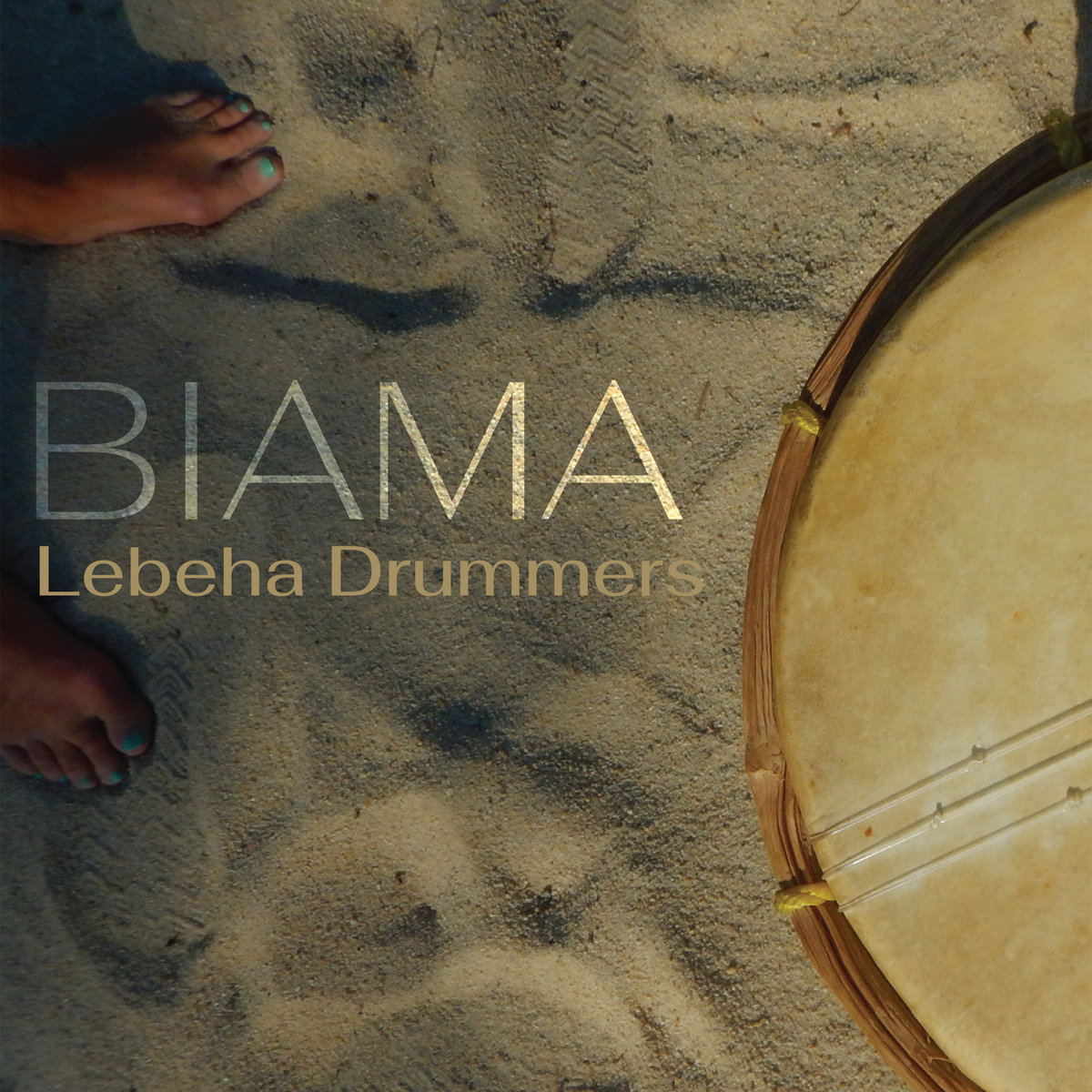

|
-
Lebeha Drummers formed in 2003 in Hopkins Village in Belize as an after-school program dedicated to nurturing and transmitting the music's unique percussion, vocals, and dance styles to young Garifuna. Rooted in Garifuna spiritual practices, its energetic percussive character, dance movements, and vocals resonate with other West African and Amerindian genres brought together in a cultural efflorescence inadvertently sparked by the European colonial adventure in the erstwhile New World.
Biama is unique, however, in hewing to the traditional Garifuna roots of voice and percussion, versus the experimental acoustic and electric guitars, bass, sampling, etc. characteristic of the work of more contemporary Garifuna music luminaries.
Read Michael Stone's review and hear some of the music.
|

|
-
Til Kirsten is the second album by the Danish string and vocal trio Vesselil. It is very much a female album, not just the musicians themselves, but the subject: Liden Kirsten, who lived in the 12th century, and is the subject of quite a few ballads and stories that have been passed down through countless generations. A few of those old songs appear here, alongside traditional dance tunes and original pieces... the entire album is filled with gorgeous melodies, sublime voices and expert playing.
Chris Nickson reviews.
|
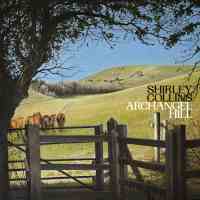
|
-
The renaissance of Shirley Collins continues on Archangel Hill, her third release since her 2016 return. This time around the production if fuller, a sound that does full justice to her voice. That voice is not the instrument of her young days, of course; she's 87 now, and she had decades away from performing. But now her singing carries the weight of experience - magnificent, full of a knowledgeable beauty. Her voice always had an unstudied, untrained simplicity and honesty; an innocence, if you will. That sense remains, but these days it's a wonderfully weathered instrument, natural and affecting in its artlessness.
Read Chris Nickson's review and hear the music.
|
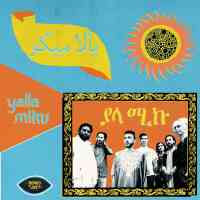
|
-
Collaborations by musicians from what we often consider "developed" nations and those still developing are popping up like mushrooms after a good soaking... we're awash in electronic updates on traditional folk forms and strange, tough-to-pin-down experimentation that exists outside previously known sonic space. Yalla Miku, on the other hand, manages to pull from its members' various heritages- Morocco, Eritrea, Algeria, and Switzerland to concoct a stew that reveals North and East African instruments and styles before wrapping them up in motoric hypnosis and post-punk jitters. The band, who call Geneva home, came into being when the European musicians connected with three North and East African immigrants, all three of whom have harrowing tales of hard travels and rough beginnings in their new home. Unlike the collaborators mentioned above, Yallu Miku neither dresses up the traditional in new clothes, nor largely eschews the musicians' solo impulses. Instead, they reimagine what might be considered African or traditional in blankets of their own making, thanks to the musicians being physically connected with one another on a full time basis.
Read Bruce Miller's review.
|

|
-
Les Abranis were made up of Kabyle Berber French Algerians, featuring two members, Shamy El Baz and Karim Abdenour, who met in Paris in the 1960s and bonded over a mutual love of rock and roll. So when they left France to play in a 1973 Algiers-based festival, they shocked the conservative country's television and live audience by cranking out some seriously primitive garage-based rock antics and, more crucially, by singing in their native Kabyle, identifying themselves as belonging to a group that the Algerian government had discriminated heavily against since the country's 1962 independence from France. So that TV appearance mentioned above shows a group that pushed at the boundaries of what Algerian music was at the time, and used their love of everything from Fela to James Brown to Hendrix, as well as their membership of a cosmopolitan North African diaspora in Paris to record music that still seems radical.
Hear the music while you read Bruce Miller's review of Amazigh Freedom Rock 1973-1983. (
|


|
-
New England pianist Neil Pearlman's Refractions takes Scottish and Gaelic song airs as the basis for his solo piano improvisational development. The airs are varied, non-obvious and well-chosen, from a large variety of sources that show his extensive familiarity with the repertoires and compositions of present-day musicians and with the most interesting of the printed collections.
Much of Scottish fiddler Iain Fraser's Kōterana is of his own composition, but like Pearlman, he draws on a discriminating choice of traditional Gaelic vocal and instrumental material from the past and present. Its title is the Māori word for Scotland, and it commemorates and evokes the globe-spanning journey by the Reverend Norman McLeod and his congregation, that began with him leaving Assynt in the West Highlands and culminated, via Cape Breton and Australia, with a Gaelic-speaking settlement in New Zealand. But even without any knowledge of the story it's an album full of life and strong tunes.
Explore these new visions of Scottish music in Andrew Cronshaw's review.
|

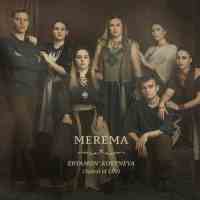
|
-
Here are two releases that are vitally important documents concerning peoples' desire to preserve their languages and culture. Both recordings are resolutely modern, but they could not sound more different.
Tarai's Empty Drum has a starkness to it that might remind the listener of post-punk; the band refers to itself as an indie, post-folk band. Their roots lie with the Chuvash people, a group that lives in the Volga River region in central Russia. Tarai are now based in Tallinn, Estonia, which provides them with an opportunity to reflect on their homeland. As one of the trio says, "Should I abandon my mother tongue in the name of economic benefits?"
Merema take the listener on a journey amongst Mordavian villages on Eryamon' Koytneva (Spiral of Life). They began as an "ethnographic folklore studio" with the intention of preserving the languages and traditions of their region. They are deeply involved in field research in their homeland, and when they perform, Merema do so in traditional costumes out of respect for their ancestors. But, it's sound is likely to stop many listeners in their tracks. The band produces a massive wall of sound that will easily appeal to lovers of the Swedish band Hedningarna.
Read Lee Blackstone's review and hear some of the music.
|

|
-
Composer and Hardanger fiddle-player Anne Hytta's Brigde is a collaboration with the Telemark Chamber Orchestra, the instrumentation being limited to strings, apart from the addition of percussionist Amund Sjølie Sveen playing wine glasses, of which Sveen turns out to be a specialist, and that's the sound which begins and ends the opening track. The sound is sparse and ethereal and an indication of what is to come, but not the whole picture. Whilst most of the repertoire of the Hardanger fiddle consists of dance music, even in this there can be a dark, introspective quality, particularly in older manifestations of the tradition. It feels as if that is what Hytta is drawing attention to here, seeking a way to bring an equivalent into the orchestral writing and it works extremely well.
Read Mike Adcock's review and hear some samples and full tracks from the album.
|

|
-
Erol Josué's second album seduces listeners into a magnetic web of the spiritualism of Haitian vodou. Pèlerinaj (Pilgrimage) also opens a window onto the integration of vodou and its pantheon of spirits, or lwas, into the daily life, aspirations, and politics of Haiti. In fact it was on the night of August 22, 1791, when two slaves, Dutty Boukman, a maroon of Sénégambian/Jamaican parentage, and Cécile Fattiman, of Haitian/Corsican birth, presided over the vodou ceremony that would consecrate the Haitian revolution launched on the very next day.
To achieve his musical and personal mission, Erol Josué has gathered together an august team of creative companions from various musical and geo-cultural realms, well-suited to express the authenticity and heart of Pèlerinaj's rhythm and ritual.
Read Carolina Amoruso's review and listen to the music.
|

|
-
At the age of 33, Cecilé McLorin Salvant has already begun to define her legacy. She has an innate understanding of jazz that allows her to improvise, scat, interpret and mix genres effortlessly. This makes listening to her sing a time loop experience, where you are both in the past and present with the future looming ahead. Salvant's ability to sing in multiple languages is, in part, due to her being the child of a French mother and Haitian father.
The story told in Mélusine has a common theme of imagining women as witches, mermaids and various other transformations in Greek mythology. It conjures a European folklore legend sung in French, Occitan and Haitian Creole, with her own compositions, and selections dating from the 12th Century. She uses these songs and stories in part to convey a character she plays in many of her songs - an intelligent coquette who is more interested in playing with men's affection than seeking it out.
Read Lisa Sahulka's full review, listen to some tracks from the album and see a video of a live performance.
|

|
-
For their third album, and first in five years, Floating Sofa Quartet becomes a revolving quintet on all nine tracks of Sofa Songs, as a cast of vocalists from several of the Nordic countries join in - Pia Raug, Topi Saha, Maria Kalaniemi, PK Keränen, Izabelle Norén, Esbjörn Hazelius, Mia Guldhammer, Ale Möller, and Lars Linholt. But as you might expected from a band that's never done the obvious thing, this isn't quite as straightforward as it might seem. It's actually a series of audio and video recordings made at locations that have meaning for the singers, all done between 2019 and 2022. Chris
Nickson reviews, and you can read, listen and watch.
|


|
-
Any album from Tuvan singer Sainkho Namtchylak will defy expectations. Namtchylak learnt the technique of throat singing from her grandmother and this, along with other vocal styles she grew up with, informs her work, though it does not define it. She has had a long career exploring new approaches to singing through experimentation and working alongside artists from different backgrounds. Improvisation is at the heart of much of what she does and that is, by definition, music made in the moment. Where water meets water: Bird songs & lullabies was recorded on the abandoned islands in the waters around Venice, a set of improvised wordless vocalizations, lightly touched by the ambient sounds of the surroundings in which they were recorded by Ian Brennan. Read Mike Adcock's review and listen.
|
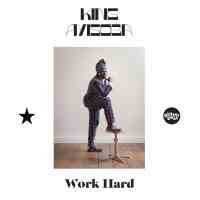
|
-
King Ayisoba is part of a recent wave of global interest in kologo players from Ghana's far northeast Bongo District. Less slick than some of his earlier releases, Work Hard revels in jagged, sometimes distorted grooves that never let up. "Good Things God Knows" jolts the record into action with Ayisoba's sandpaper rasp before his kologo (2-stringed lute) enters, followed quickly by electronic percussion, autotuned harmony vocals, and a rhythmic relentlessness as he declares that everything we do is pre-ordained.
Read Bruce Miller's review and hear some of the music.
|

|
-
Since 2019, Moldova-based Antonovka Records has released 96 digital albums of field recordings of the vocal and instrumental traditional music of largely minority peoples. These aren't from some kind of archive; nearly all are recorded since 2017 and new ones are still being recorded and released regularly by Russian-born music enthusiast and recordist Anton Apostol.
Andrew Cronshaw delved deep into this expansive catalog, and interviewed Apostol by e-mail. Read their conversation and listen to just a small sampling of the musical world.
|

|
-
Dur Dur Int. was a popular golden-age dance band, making otherworldly, dance floor-saturating funk from Somalia, What makes The Berlin Session so spectacular is that its existence is the direct result of new attention directed at this highly infectious, speaker-rattling music from Somalia's more stable past. Recorded in Berlin in 2019 with equipment that picked up the room's echo perfectly as the band played live, the reunion served to bring exiled singers together with Dur Dur's original bassist, as well younger players who keep the flame of this music burning.
Read Bruce Miller's review and hear a few tracks.
|

|
-
To set the new album by Nyokabi Kariũki in the correct context, we need to conjure cento poems, found sounds, languages, the African diaspora, COVID as well as the music that animates Feeling Body. This work is a collage of natural elements, primarily the healing powers of water, a Kikuyu tribal philosophy, but also the power of words in convincing ourselves that there is another side to despair.
Kariũki was born and raised in Nairobi, Kenya. The album was recorded in New York and Maryland where the composer and musician splits her time. She has summoned a body of music that requires deep intellectual and spiritual contemplation to fully appreciate its depth. It is an engrossing work that transports the listener to a private environment that is all encompassing.
Listen to some of the music and read Lisa Sahulka's review.
|

|
-
It's a very rare thing, but once in a long, long while an album comes along to get the blood pumping, stir the imagination and upend everyone's expectations. Hack-Poets Guild is a collaboration between three very experienced musicians and they've created something unique. Given access to the vast collection of old broadside ballads in Oxford's Bodleian Library, they emerged to create Blackletter Garland, a record that sometimes adapts the originals, sometimes takes them as a springboard for something new, and sometimes uses the words directly, but frames everything in an utterly original musical context.
Read Chris Nickson's review and listen.
|

|
-
When you listen to the duo of Sam Reider and Jorge Glem toss melodies and rhythms back and forth song after song, the other thing you can hear is the fun that sparks up between them.
The pairing of a Venezuelan cuatro and an accordion is unusual, but the duo make the match seem natural even as they turn their joint journey into a worldwide exploration on Brooklyn Cumaná.
Read Marty Lipp's review and listen.
|
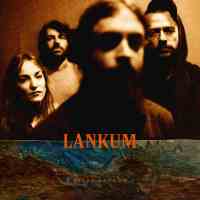
|
-
Lankum do intensity. They always have; it's pretty much their stock-in-trade. But what they've done in the past seems almost mild compared to the full-on feel that marks out False Lankum. The Dublin quartet spread their musical wings, bring in some guests and take a trip into psychedelia, and all that while upping that intensity.
Read Chris Nickson's review and listen.
|
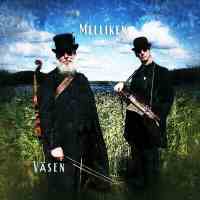
|
-
38 years together and still going strong. That's not a bad history, although inevitably it involves a few changes. Swedish band Väsen is making their second recorded appearance as a duo on Milliken, with Olov Johansson on the nyckelharpa and Mikael Marin playing an assortment of bowed instruments. The sound is unmistakable; rich and complex and woody, the notes flowing free, so carefully interwoven that it's hard to tell where one player ends and the other takes over. That long-honed mix of precision and freedom is on display from the start...
Read Chris Nickson's review and listen to the strings.
|
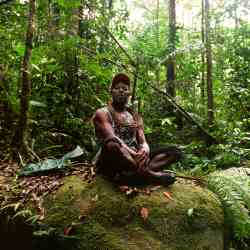

|
-
Polobi and the Gwo Ka Masters' Abri Cyclonique is largely the production work of Irish-Parisian producer Doctor L - aka Liam Farrell. This record doesn't sound anything like actual Gwoka drumming and singing, which is what 69 year old Creole singer and drummer Moise Polobi, from Petit-Bourg, Guadeloupe, became obsessed with as a boy... Abri Cyclonique allows Polobi the song creator and vocalist a chance to apply his booming voice to tracks about his ancestry, fishing for crayfish, and the spirits that watch over the land in a Creole language of his own invention. In other words, this isn't a Gwoka record. It doesn't need to be. Instead, the music here is based on select tracks from a mountain of cassette tapes Polobi had recorded of himself singing and drumming, which a neighboring musician, Klod Kiavue, sifted through.
Read Bruce Miller's full review, hear some music and watch 2 videos.
|
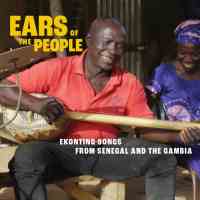
|
-
Thanks to more than a quarter century of scholarly work, as well as a growing number of young, contemporary African American banjo players, it is increasingly well understood that this often maligned, misunderstood, yet ubiquitous North American folk instrument came from West Africa... Perhaps nothing comes closer in resemblance and direct ancestry to the American banjo than the ekonting, found in far-west Africa's Senegambia region... The music on Ears of the People: Ekonting Songs from Senegal and Gambia is a revealing look at this instrument.
Read Bruce Miller's review and listen to the music.
|
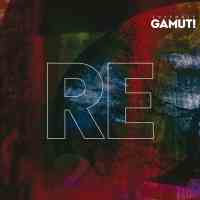
|
-
This is the second album from Finnish trio Ensemble Gamut!. They describe themselves as an "experimental collective of early music and folk music specialists, who are constantly searching for new ways to perform early music," and certainly do what they claim on RE. They take medieval sacred music from their country, along with some rune songs, and even an original, and reimagine them. While they never lose the eerie beauty of the original melodies, or the fragile sense of holiness, they weave a web that crosses time, from the Middle Ages to the modern day, with subtle electronics underpinning the voices, bowed lyre, flutes and harp.
Read Chris Nickson's review and hear some of the music.
|


|
-
Lía Naviliat Cuncic brings the polish of classical music and the romance of Latin America to Como una Flor sin Raices, the first release under her lead. Of Uruguayan and Chilean background, Natiliat Cuncic was born in Belgium and moved to France, where she studied Western classical music and voice... Now, she steers her maiden voyage back to South America and the music of her own heritage.
Como una Flor sin Raices encapsulates many-colored beadlets of musical travels and sentiment that she releases into the soundsphere with her finely honed voice, eschewing high jinks while embracing measure and clarity. Naviliat Cuncic pairs the music of the southern New World and its multiple genres with that of the Old, handily vaunting the baroque, and she uses her lyrics to summon the aching, the reckonings and the resiliency of her, and our, heart.
Read Carolina Amoruso's review and hear some of the music.
|

|
-
The Canadian quartet Vinta performs their own original tunes on Beacons, reflecting the influence of musicians from the past, combining a European feel with a North American joyful spring. They have also produced a series of recordings of the tunes by many of those fiddlers, an accordionist and a singer.
It was their album Vinta Plays Olitunes, with compositions by the late Oliver Schroer, that attracted Andrew Cronshaw to this ensemble and their ongoing series of releases. These encompass their versions of material from the repertoires of now-passed musicians. Without exception they are beautifully arranged and played by Nathan Smith, Emilyn Stam, John David Williams, and Robert Alan Mackie.
Andrew's review introduces you to their debut album, and the first in a continuing series of great tunes from around North America and Europe.
|
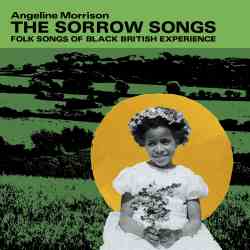
|
-
The slave trade was an awful thing, buying and selling people and treating them as less than human. But those people were able to carry a few things inside them. One was music, which took on different shapes in the countries where they were carried. Largely, though, slavery didn't exist in Britain (although black Africans have lived here since at least Roman times), so the Isles never had a similar legacy. Angeline Morrison, herself descended from African slaves, has told some of the stories of black people who've lived here. She brings them alive, and makes sure they have a place in history in her latest recording, The Sorrow Songs (Folk Songs Of Black Experience).
Read Chris Nickson's review and hear some of the music.
|

|
-
The Nordic countries aren't the first place that springs to mind when one thinks of Roma (Gypsy) music. But there are threads of Roma music and generations of musicians in the fabric of the traditional music and song in these countries as in so many others, and indeed they sometimes keep traditions alive that have almost or completely died out in the wider population.
Elias Akselsen is 74, but there's no sign of quavery age in his strong, finely modulated singing. He was born in Norway of Romany Traveller parents. Born on the road, childhood was tough, and he spent 16 years as a street singer in Sweden... Since the late 1970s he's lived back in Norway... upholding and disseminating his culture, making records and working with leading Norwegian musicians. Brilliant multi-instrumentalist Stian Carstensen has, since the turn of the millennium, been a frequent supporter and collaborator. For the album Horta, he and Akselsen are joined by classical, traditional and jazz violinist Ola Kvernberg.
Explore this little known branch of the Roma music family in Andrew Cronshaw's review.
|

|
-
Baglama master, vocalist and lyricist Derya Yıldırım and Şimşek, a trio of Roland synth, bass, and drums, owe more than a little to classic Turkish Anadolu psych. Part of the reason for the comparison lies in the Yıldırım's baglama playing, which, connects folk and pop effortlessly. There's also her rhythm section's loping, analogue funk grooves that are buoyant with 1970's warmth. Both bassist/guitarist Antonin Voyant and drummer Greta Eacott mesh effortlessly, allowing Graham Mushnik's synth to weave melodies that complement Yildirim's voice and saz.
Bruce Miller reviews.
|

|
-
Shriekback were a big name some 40 years ago, parading their dark, intelligent dance music, their videos spreading the gospel far and wide in the days when MTV was young and daring. Formed by keyboard player Barry Andrews, once of XTC, they had a sound that was completely their own and a taste for curiously enigmatic lyrics.
Spring forward four decades and Shriekback are still going and releasing albums. Except Bowlahoola (the title comes from William Blake's poem, "Milton") is actually an Andrews solo project. Not that you'd know it from the music. Even to someone unfamiliar with the band in recent times, the sound is instantly identifiable as Shriekback... Today they still make music to propel the feet, but they're very much about songs – which brings the realization that they were always really song and dance men.
Chris Nickson reminds you to think, and to dance.
|
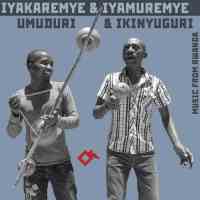
|
-
Recorded by the umuduri (musical bow) and ikinyuguri (rattle) duo of Justin and Eric Iyamuremye in an apartment building in Kigali,Uganda, this music features not only the hypnotic repetition of the bow and rattle's 1-2-3-4-5 pulse, but also their vocal harmonies, which showcase an unmistakable mournful depth so unique to Rwandan music. Tracks don't deviate much musically from one to the next, as Justin's single-string bow remains in a fixed key. However, on occasion, the rhythm shifts in emphasis, while the duo's vocals answer each other and work in unison or solo.
Read Bruce Miller's full review and listen.
|
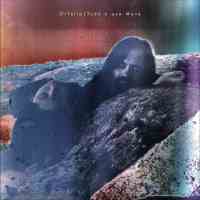
|
-
Orfélia note that their inspiration for the title of their new album, Tudo o Que Move comes from Gilberto Gil's tune "Aqui e Agora" ("Here and Now") with the lyrics "love is all that moves." Orfélia at its best captures this sound with the guitar work of Filipe Mattos and the vocals and piano of Antera Mattos. But it is fair to say that this music rendered poorly can sound processedt. The songs on Tudo o Que Move that stand out are lovely and have a depth that makes them intriguing.
Lisa Sahulka reviews.
|
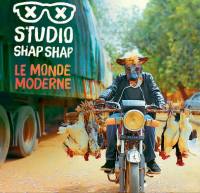
|
-
Studio Shap Shap's music seems to have gone through a radical change since the Niamey, Niger-based quintet's last LP in 2016. Gone is the dominant role Laetitia Cecile's piano and voice once played, though she is still very much present. Gone too are the hazy, mid-tempo, nearly ambient excursions so plentiful on their debut. The field recordings remain, but this time, they appear to be less about capturing the group's natural outdoor studio ambiance and more to do with adding layers, before, after, and during many of Le Monde Moderne's tracks. Spoken word snippets, looped vocals coming from loudspeakers, and other veiled samples permeate tracks, causing unsettling whirlwinds...
Bruce Miller reviews.
|

|
-
The trio Wernyhora come from the extreme south-east of Poland, on the edge of the Carpathians near the meeting of Poland with Ukraine and Slovakia. So it's natural that they focus on the traditional songs of their region, where several peoples meet ... The majority of the songs on Toloka, which are all in Ukrainian (with Polish and English translations of their very interesting and beautiful lyrics included in the booklet), are drawn from the many-volume collection that ethnologist Oskar Kolberg made across Poland in the 19th century, plus some from more recent sources including one from field recording work by the group's hurdy-gurdyist Maciej Harna.
Read Andrew Cronshaw's full review and listen.
|
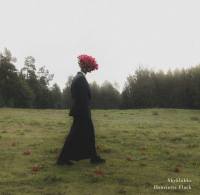

|
-
Even before you start playing the album, the cover is guaranteed to grab attention: a woman walking across a field, her head replaced by a bunch of flowers. So far, so surrealist for Danish multi-instrumentalist and composer Henriette Flach. In recent years she has built quite a reputation on fiddle, Hardanger fiddle and nyckelhapa, playing variously with Mynsterland, Tailcoat, and the relentlessly questing Penny Pascal. While Skyklokke, her solo debut, stretches few boundaries, her compositions are melodic and eminently satisfying, ready to trip the light fantastic.
Chris Nickson reviews. Listen along.
|
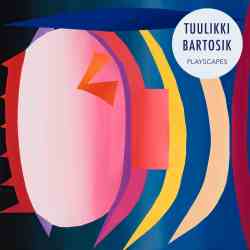
|
-
Playscapes is the third solo album from Tuulikki Bartosik and it marks something of a departure from her earlier releases. Although the accordion remains at the centre of things she has extended the possibilities it offers by using various pedals to alter the tone and also to loop short melodic motifs, which gives many of the tracks a repetitive, minimalist quality. Bartosik also plays piano, harmonium and an Estonian zither, similar to the Finnish kantele, as well as singing on some tracks.
Mike Adcock listens in on her musical travelogue.
|
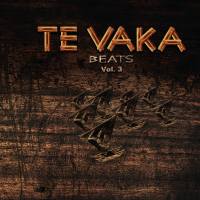
|
-
New Zealand band Te Vaka was founded by singer and songwriter Opetaia Foa'i in 1994. Since then the group of musicians and dancers, some of whom have Polynesian backgrounds in Samoa, Tokelau and Tuvalu, have traveled the world presenting their contemporary take on Pacific music... This new release serves to dispel any suspicions that their commercial success - including the Beijing and London Olympics and contributions to the soundtrack of the Disney film Moana, might have led them to lose sight of their musical origins. This is essentially an album of percussion - log drums, skin drums and shakers - which retains the raw excitement of the Polynesian traditions of music and dance for which the group have become ambassadors.
Mike Adcock hears the Beats: Vol.3
|
Support RootsWorld. Subscribe to Music of the Month.
Browse more reviews from
2022
2021
2020
2019
2018
2017
2016
We Interupt Our Regularly Scheduled Magazine For This Important Announcement.
RootsWorld cannot survive without the support of our readers. If you want to hear great music and read great writers, then we need each listener and reader to contribute just a little to make it happen. Please join us!
Make a One Time Contribution Today!
|
$5.00
|
$10.00
|
$20.00
|
|
$40.00
|
$70.00
|
$100.00
|
Please contribute to our survival.
About RootsWorld: RootsWorld is a world music magazine started in 1993, pretty much at the dawn of the term "world music" as well as the pre-dawn of internet publishing (I suspect this was the first music magazine of any sort published on the www). Our focus is the music of the world: Africa, Asia, Europe, Pacifica and The Americas, the roots of the global musical milieu that has come to be known as world music, be it traditional folk music, jazz, rock or some hybrid. How is that defined? I don't know and don't particularly care at this point: it's music from someplace you aren't, music with roots, music of the world and for the world. OK?
All pages at RootsWorld are © 1992-2023 RootsWorld/ Cliff Furnald / FNI Multimedia Publishing, New Haven CT
The RootsWorld name is protected by US trademark law.
All picture and sound images are the property of the artists and record labels, and are protected by copyright. No file or part of a file may be used for any purpose, commercial or non-commercial, without the express written consent of RootsWorld or the other copyright owners.
About the use of sound files and copyright protections at RootsWorld
|
